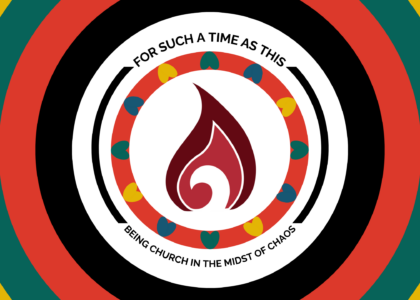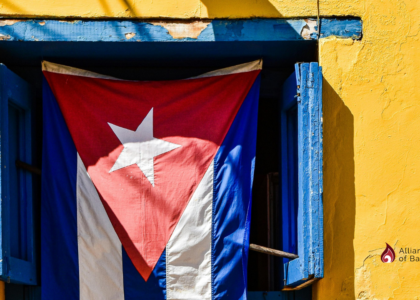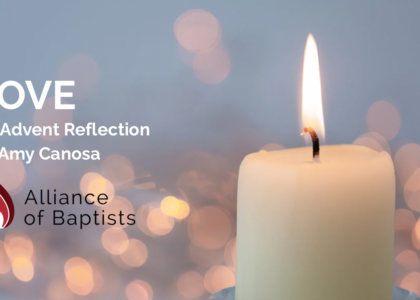By Laura Mayo
The Christmas movies are in full swing. Boy meets girl. Girl meets boy. And these days, thank God, boy meets boy and girl meets girl. And then surprise, someone ends up being the next in line to rule some unknown tiny but charming country enjoying the most wonderful Christmas season. We love a good kingdom story. Most of our fairy tales are set in kingdoms; some of our very best movies: “Monty Python and the Holy Grail” (“I am Arthur, King of the Britons.” “I didn’t vote for you.” “You don’t vote for a king.”); “The Princess Bride” (“My people, the Princess Buttercup!” “Boo! Boo! Bow to the Queen of slime!”); “Robin Hood” (1973 Disney version, of course). We saw recently with the death of the Queen of England just how much the monarchy has meant to so many.
However romanticized, kingdoms have rarely been good things. And not just kingdoms, any system with one person with tremendous power over everyone else. Power can be used for good; at least theoretically. Best I can tell, Plato’s philosopher king remains merely an idea. Power even with the best intentions is corrupted, abused, misused.
By the time Jesus was born the last King of Judah had long been dead and the last King of Israel had been dead even longer. Jesus, like the other Jews of his time, was governed by the Roman Empire meaning that the government of Rome required him, regardless of his religion, to pay taxes to Rome and obey Roman laws. The Roman Empire was oppressive and brutal. No doubt their treatment by the Roman Empire contributed to the common Jewish expectations at the time for a messiah who would come with military and political might.
But Jesus was not that kind of messiah. He prays to God, “Your kingdom come on earth as it is in heaven” (Matthew 6:10). And talks again and again with story after story about a kingdom of heaven: “What is the kingdom of God like? And to what should I compare it? It is like a mustard seed that someone took and sowed in the garden; it grew and became a tree, and the birds of the air made nests in its branches.” And again he said, “To what should I compare the kingdom of God? It is like yeast that a woman took and mixed in with three measures of flour until all of it was leavened” (Luke 13). As Jesus makes his way to Jerusalem, he tells story after story about an alternate kingdom. These stories draw us in and make us consider our choices: What if a man were lying, beaten, by the side of the road, and you came along? What if what you do for the least of these you do for me?
Everything Jesus says and does is cloaked in political implications. From the very beginning, Jesus is talking about and enacting a different kind of power; a different realm where justice and peace overcome oppression and violence. “Let the little children come to me for to such as these belongs the kingdom of God” (Matthew 19:14; Luke 18:16).
Jesus is not trying to establish a new government. Consider, he does not gather an army—quite the opposite. He does not try to take back territory from Rome. No, he encourages the people to pay their taxes. Jesus unequivocally rejected typical kingship. Think back to the temptations in the desert: the devil offers Jesus the ability to rule all the kingdoms of the world and Jesus refuses (Matthew 4; Luke 4). He does not seek political gain. Far from shaking hands and kissing babies, he makes everyone mad: the people want him to be a political leader, he refuses; the religious leaders try to stop him, he keeps preaching, teaching and healing; Rome mocks him and his alternative realm, and he still won’t keep quiet.
Consider that infamous ride into Jerusalem. Jesus refuses nationalism by choosing to ride on a donkey instead of a war horse. Long before the parade on the donkey, Jesus makes it clear that the kingdom he is talking about, the realm of God, is not just for one group of people. The kingdom Jesus is teaching and preaching and living is not compatible with nationalism. When Jesus sends out his followers it is as “sheep among wolves” not as well-formed armies (Matthew 10:16). And Jesus is clear about where they are to go: “Go therefore and make disciples of all nations, baptizing them in the name of the Father and of the Son and of the Holy Spirit (Matt. 28:19).” All the nations.
Jesus includes. He builds an ever-expanding welcome. As Paul will make clear in the days of the early church: Jesus united Jew and Gentile. He “made the two groups one and has destroyed the barrier, the dividing wall of hostility…to create in himself one new humanity out of the two…and in one body” (Eph. 2:14-16). For in God’s fellowship, “There is neither Jew nor Gentile, neither slave nor free, nor is there male and female, for you are all one in Christ Jesus” (Gal. 3:28).
Still not convinced? Jesus commands us to love our enemies. This is the opposite of nationalism. This act of love destroys all borders; it makes everyone everywhere into a neighbor. Love your enemies replaces the us and them with only us—no them, no othering, no outsiders, no exclusion.
Christ the King Sunday shows up on our liturgical calendars every year on the Sunday before Advent. It was established by Pope Pius XI in 1925 in response to the increasing threat of the rise of fascism in Europe leading up to World War II.
We are long past 1925 but the threat of facism remains. Fascist leaders propagating authoritarianism and nationalism woven with racism are gaining a voice and power in many countries around the world. There are government officials within our own country with documented ties to white nationalist groups, the number of anti-Semitic hate crimes continue to rise, and many of our political leaders proudly declare the lie that we are and have always been a Christian nation.
The Baptist Joint Committee for Religious Freedom has been doing a lot of excellent work around the threat of Christian nationalism. They define Chrisitan nationalism this way: “Christian nationalism is a cultural framework that idealizes and advocates a fusion of Christianity with American civic life. Christian nationalism contends that America has been and should always be distinctively “Christian” from top to bottom—in its self-identity, interpretations of its own history, sacred symbols, cherished values, and public policies—and it aims to keep it that way. But the “Christian” in Christian nationalism is more about identity than religion. It carries with it assumptions about nativism, white supremacy, authoritarianism, patriarchy, and militarism.”
Christian nationalists tend to use the language of “religious freedom” in describing their efforts to promote Christianity and give it special protections. This is not religious freedom. Religious freedom means protecting religious liberty for all, not just the privileged few. Religious freedom is guarded when there is no government sponsorship, no discrimination and no preference.
At the church I serve, as in most Alliance of Baptist churches, we do not have an American flag in our sanctuary. This does not mean we have no loyalties; this does not mean there is nothing we are following or giving our allegiance to. It does not mean that we are not patriotic. It means that patriotism to our country is not housed in the house of worship to the God of love who shows no favoritism to one country over another.
Jesus calls us to follow him, to make our allegiance to the kingdom of God, a kingdom of love and peace and justice that includes all people of every nation and land. Jesus was political. Absolutely. He preached and lived and taught an alternative kingdom to oppressive Rome. And the empire killed him for it. He went to the capital and rode in on a donkey, but he carried no weapons. The people gathered at his protest march waving palm branches and shouted, “Hosanna.” They were not a violent mob. Jesus taught nonviolence: “Turn the other cheek,” he said. If you are conscripted by a soldier of the empire to carry his pack for one mile, don’t just carry it one mile, carry it two, he said (Matthew 5).
During Jesus’ sham trial, Pilate asks Jesus if he is a king and about his supposed kingdom. Jesus says, “My kingdom is not of this world. If it were, my servants would fight to prevent my arrest by the religious leaders. But now my kingdom is from another place” (John 18). My kingdom is not of this world: meaning my kingdom is not like worldly kingdoms. You don’t see my followers fighting or recruiting for battle, do you? There is not one people or one place that belong to my kingdom. No, my kingdom is like the woman who baked so much bread that she had to share it with everyone. “Once Jesus was asked by the religious leaders when the kingdom of God was coming, and he answered, ‘The kingdom of God is not coming with things that can be observed; nor will they say, “Look, here it is!” or “There it is!” For, in fact, the kingdom of God is among you’” (Luke 17:20-21).
God’s kingdom is for everyone, everywhere, it cannot be established by one group to the exclusion of any other group. Indeed it cannot be established at all. It is already here. It is already in us and among us regardless of our country, race, ethnicity, clan. The realm of God is for everyone; not one nation. You cannot go to the Kingdom of God. It is not like earthly kingdoms but make no mistake it is here, on earth. The realm of God is in you and me and everyone everywhere seeking love not power, compassion not control; it is in everyone doing justice and loving mercy, the kingdom of God exists in all people seeking peace not war.

Rev. Laura Mayo is the Senior Minister of Covenant Church in Houston, Texas. She is a graduate of Carson-Newman College in Jefferson City, Tenn., and Wake Forest University Divinity School in Winston-Salem, N. C. Laura is active in Houston interfaith work and is regularly published in the Houston Chronicle and Baptist News Global. Laura has served on the board of the Alliance of Baptists.





Recent Comments